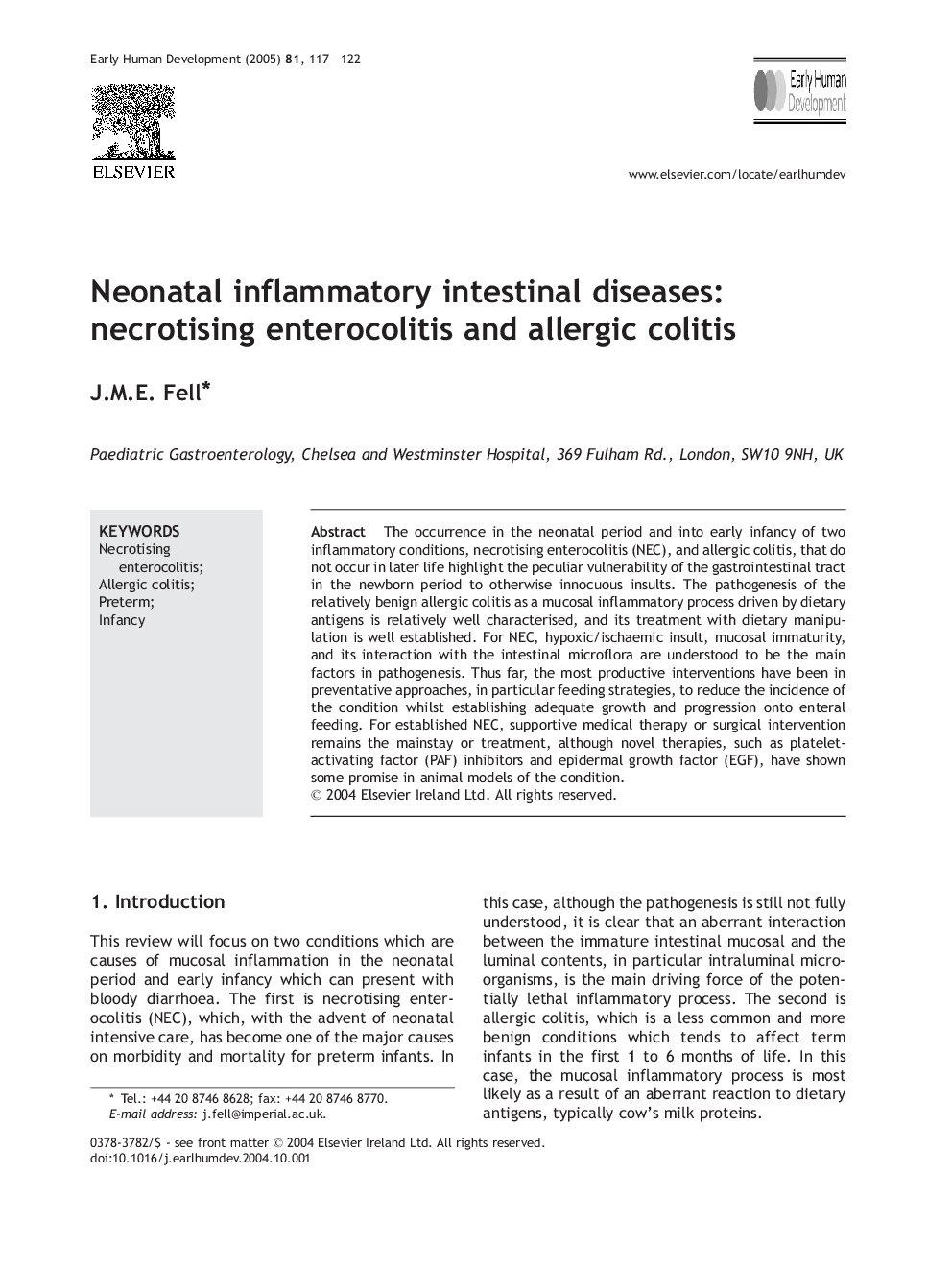| Article ID | Journal | Published Year | Pages | File Type |
|---|---|---|---|---|
| 9318754 | Early Human Development | 2005 | 6 Pages |
Abstract
The occurrence in the neonatal period and into early infancy of two inflammatory conditions, necrotising enterocolitis (NEC), and allergic colitis, that do not occur in later life highlight the peculiar vulnerability of the gastrointestinal tract in the newborn period to otherwise innocuous insults. The pathogenesis of the relatively benign allergic colitis as a mucosal inflammatory process driven by dietary antigens is relatively well characterised, and its treatment with dietary manipulation is well established. For NEC, hypoxic/ischaemic insult, mucosal immaturity, and its interaction with the intestinal microflora are understood to be the main factors in pathogenesis. Thus far, the most productive interventions have been in preventative approaches, in particular feeding strategies, to reduce the incidence of the condition whilst establishing adequate growth and progression onto enteral feeding. For established NEC, supportive medical therapy or surgical intervention remains the mainstay or treatment, although novel therapies, such as platelet-activating factor (PAF) inhibitors and epidermal growth factor (EGF), have shown some promise in animal models of the condition.
Related Topics
Health Sciences
Medicine and Dentistry
Obstetrics, Gynecology and Women's Health
Authors
J.M.E. Fell,
